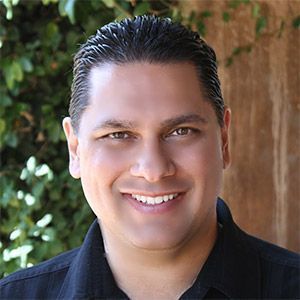‚ÄúNow go; I will help you speak and will teach you what to say.‚ÄĚ ‚Äď God, to Moses (Exod. 4:12)
Moses. Here is a man known globally and generationally by only his first name. His towering reputation as a consummate leader and divinely inspired oracle is an unquestioned maxim. Yet the larger-than-life mega-prophet was, at least in his mind, an unlikely candidate to be the mouthpiece of God and the author of the Torah ‚ÄĒ a magnum opus in the storied history of human literature.
Divine irony and polarity of extremes would characterize Moses’ life: tragedy and triumph; victory and defeat; glory and ignobility; posh excess and paltry existence.

Born in obscurity and saved from the watery grave of the Nile that claimed the lives of his male compatriots, he was raised as the son of a princess in the palace of Pharaoh. Like other more recent world leaders that include the likes of Yasser Arafat and Saddam Hussein, Moses received his formal education in Egypt. He was undoubtedly afforded every available resource to cultivate both deep intellectual acumen and broad leadership prowess. Moses fully exploited these opportunities, but the comforts of borrowed royal privilege did not eliminate his primal convictions about justice and truth.
In early adulthood, Moses had a flashpoint that crystallized his understanding about the exploitation of his Hebrew relatives. He was eyewitness to the public beat down of an extended relative by an Egyptian master ‚ÄĒ an event that triggered a reservoir of rage within him, resulting in an ancient form of vigilantism and the manslaughter killing of the Egyptian offender. Though the defense of his countryman was understandable, it was unjustified. This led Pharaoh to form a wanted-dead-or-alive posse charged with the capture or killing of the fair-haired child that once lived in his own household.
Moses was now on the lam, and entered the second phase of his still-incomplete training ‚ÄĒ something those of us in Christian education call ‚Äúfield education.‚ÄĚ Unlike formal education, which is primarily cognitive and cerebral, field education is more affective and behavioral. So Moses began his on-the-job training. It was here that God would use a host of experiences to shape Moses into the man he needed to become in order to do what God wanted him to do.
A serendipitous encounter involving an unconsumed burning bush and the presence of YHWH (the One and Only True God) led Moses to his life mission: to champion the complementary causes of loving God and loving people ‚ÄĒ the essence of the law Moses would later receive and give to the people he was called to liberate.
Moses was promised divine presence, protection and provision as he carried out God‚Äôs plan for his life. Yet even being armed with the Rod of God and the Sword of the Lord, he felt inadequate to the task. Moses‚Äô primary problem was unction ‚ÄĒ the ability to speak truth to power and people. After pleading his case, God allowed Moses‚Äô golden-tongued brother, Aaron the Levite, to join him on the platform that God would give them in order to speak on his behalf.
The rest is history. Though Moses continued to complain about his ‚Äúfaltering lips‚ÄĚ ‚ÄĒ speak for God he did. Indeed! He was soon weaned off his perceived need of Aaron‚Äôs skillful rhetoric. Moses had found his voice. Now armed with a voice and a cause, Moses led the Hebrew children with deft skill and strong distinction. He confronted Pharaoh and challenged the people. His voice was heard and heeded.
Like Moses, friends and family of ļŕ›ģ ”∆Ķ ‚ÄĒ particularly Biola alumni ‚ÄĒ have had their share of life‚Äôs opportunities and challenges. You have enjoyed formal education while in university studies and endured field education through the School of Hard Knocks. Through it all, God has used those experiences to filter and forge you into a powerful instrument to do his bidding. I encourage you to take the next step in advancing the cause of Christ by learning these three secrets of finding your voice.
Like we see in the message of Moses, speaking for God wherever he has placed you requires you to:
- Be a voice of clarity. Speak.
- Be a voice of conviction. Speak the truth.
- Be a voice of compassion. Speak the truth in love.
Freddy Cardoza is professor and chair of Biola’s Department of Christian Education; Cardoza also serves as executive administrator of the North American Professors of Christian Education (NAPCE). He holds a Ph.D. in leadership from the Southern Baptist Theological Seminary.
 ļŕ›ģ ”∆Ķ
ļŕ›ģ ”∆Ķ
.jpg)

